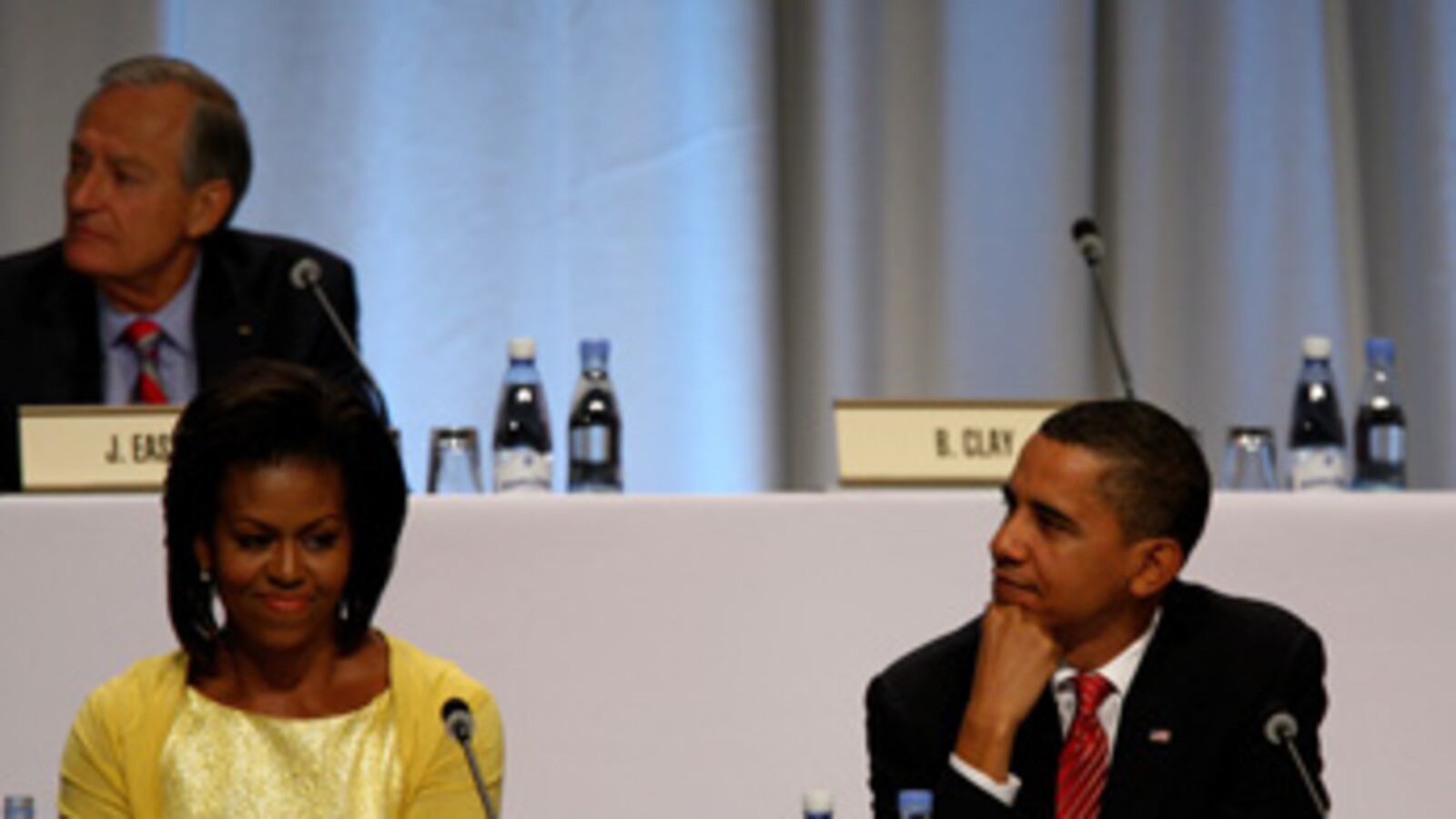
President Obama says he's glad he went to Copenhagen to make a bid for the Olympics, but conservatives say the high-profile failure has exposed the limits of Obama's popularity abroad, Politico reports. Some conservatives are even celebrating Chicago's loss. Below, Richard Wolffe on what went wrong.
Barack Obama is a sports nut. He watched ESPN for relaxation through the course of the long campaign, and wrote his 2004 convention speech while watching a game of basketball on TV.
But how much of a nut do you have to be to spend your political capital on trying to win the votes of a closed international organization with a history of bribery, where some 106 votes are spread among minor royals, aging sports stars and political hacks?
“Barack and I have looked at this—this is like a campaign. Just like Iowa,” the first lady said.
Ahead of President Obama’s trip to Copenhagen, the president and first lady seemed to regard the International Olympic Committee as a little like an Iowa caucus. "Barack and I have looked at this—this is like a campaign. Just like Iowa," the first lady said. “The international community may not understand that, but Iowa is like a caucus, and you can't take any vote for granted. Nobody makes the decision until they're sitting there.”
Because Obama had been such an expert at winning over a room of voters in Des Moines, surely the Danish capital would follow suit.
It did not work out that way. Chicago’s failure to clear the first round of voting in Copenhagen points to a fundamental misunderstanding of Iowa and the IOC. It took Obama almost a year of solid campaigning to understand Iowans, reach his swing voters, and win them over. A couple of hours of speech-making and schmoozing is not in the same universe as his efforts at caucus-building.
Besides, the IOC has been in campaign mode for several years; the schmoozing and fact-finding trips began long ago. If candidate Obama had landed in Des Moines in December 2007, he would have failed there, too—no matter how great a speech he might have given. The president could win more votes inside a loya jirga in Kabul than he did inside the IOC.
The fact that Madrid made it to the final round of voting tells its own story. No offense to my Spanish friends, but it’s no coincidence that Madrid is the favored city of Juan Antonio Samaranch, who ruled the IOC as its dominant president for 21 years until 2001, and whose son sits on the IOC committee.
The White House says the president should be given credit for trying to achieve something for his country. That is true. He approached the effort in good faith and gave it his best shot, with his wife working hard by his side. They argued that the Games meant a lot to them personally, to Chicago, and to America’s place in the world. The only problem was that every other leader made the same argument about their own candidate city and country.
Obama’s best shot was too little, too late, in an unpredictable situation with far too much downside. Expectations were so high back home that victory was an assumption. The rejection hits not just the Obamas’ hometown. It shows the limits of the president’s personal charm on an international stage—even if that stage is narrow and unrepresentative.
Now, at a critical point of the health-care debate, the president will be lampooned by conservatives for pursuing a parochial interest half way across the world—and coming up short. If the IOC can reject his pressure, what risk is there for them to do the same? Speaking to ABC’s Jake Tapper, White House Chief of Staff Rahm Emanuel—one of the diehard Chicago contingent at the heart of power inside the West Wing—warned his political opponents to back off.
“They shouldn’t try to make politics of this,” he said. “I think they should take some pride in the U.S.’s win, and you know we’ll make sure they get some good seats once Chicago does host the Games.” Good advice—for Brazil.
Richard Wolffe is a Daily Beast columnist and an award-winning journalist, and senior strategist at Public Strategies. He covered the entire length of Barack Obama's presidential campaign for Newsweek. His book, Renegade: The Making of a President, was published by Crown in June.





